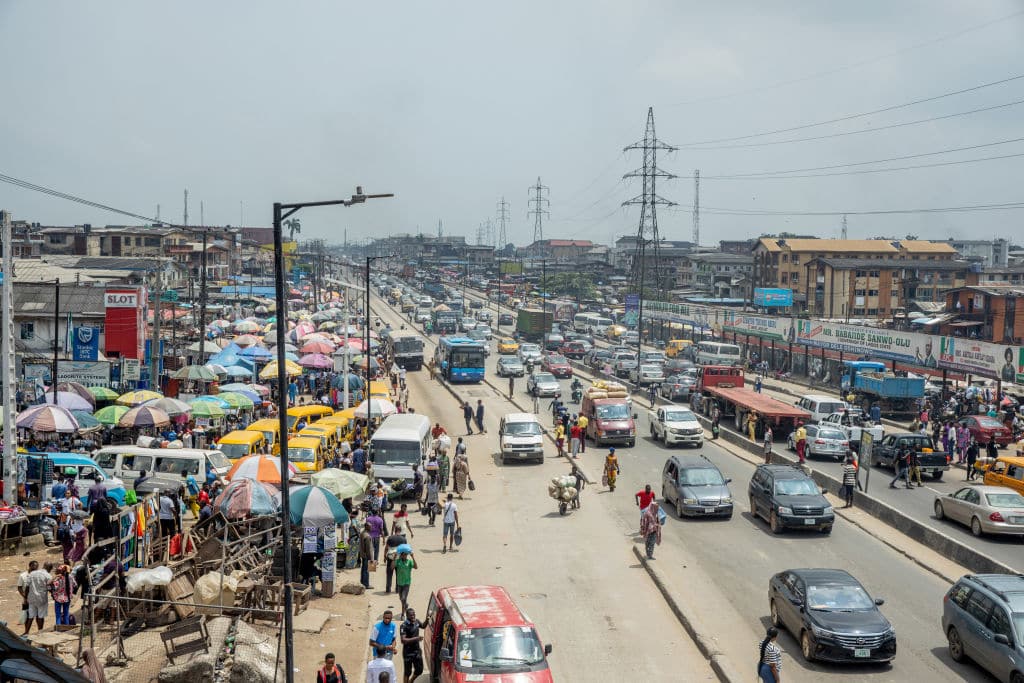In the recent report by the National Bureau of Statistics (NBS) in Nigeria, the Consumer Price Index (CPI) for December reveals an increase, with the headline inflation rate rising to 28.92% compared to November’s 28.20%. The report indicates a 0.72% point uptick.
In an analysis by financial services provider CardinalStone, titled Sailing Through Troubled Waters—Nigeria: 2024 Economic Outlook, the effects of economic reforms, including subsidy removal and efforts to harmonize exchange rates, have left a lasting impact on Nigeria’s economic landscape. The report highlights a trend as inflation soared to a 27-year high, triggering a decline in economic activities throughout last year.
Analyzing the year-on-year data, December’s headline inflation rate was 7.58% points higher than the same month in 2022. This surge signifies a deviation from the 21.34% recorded in December 2022.
Notably, both urban and rural inflation rates witnessed significant spikes, with urban inflation reaching 31.00% (8.98% points higher than December 2022) and rural inflation hitting 27.10% (6.38% points higher than December 2022).
The food inflation rate for December surged to 33.93% on a year-on-year basis, driven by increases in prices of various essentials. Notably, the report pinpoints price rises for bread and cereal, oil and fat, potatoes, yam and other tubers, fish, meat, fruit, milk, cheese, and egg.
Core inflation, excluding volatile items like farm produce and energy, stood at 23.06% in December, marking a 4.85% increase compared to December 2022. The highest spikes were observed in prices of passenger transport by road, medical services, actual and imputed rentals for housing, passenger transport by air, pharmaceutical products, and accommodation services.
Geographically, Kogi, Lagos, and Rivers experienced the highest year-on-year inflation rates in December 2023, while Borno, Taraba, and Katsina recorded the slowest rise. On a month-on-month basis, Bayelsa, Bauchi, and Oyo saw the highest increases, while Nasarawa, Delta, and Sokoto reported the slowest rise.
In the context of food inflation, Kogi, Kwara, and Imo led the year-on-year surge, whereas Bauchi, Jigawa, and Sokoto recorded the slowest rise. On a month-on-month basis, Bayelsa, Ogun, and Enugu witnessed the highest increases, contrasting with Nasarawa, Delta, and Niger reporting the slowest rise.
According to the analysis by CardinalStone, the repercussions of policies by the new government were felt most significantly in domestic consumption, which accounts for approximately 60% of the economy. The decline in domestic consumption reached a 10.6% last year, surpassing the contractions experienced during both the Covid period and the 2016 recession. CardinalStone experts emphasize the severity of the situation, stating, “Materially weaker than the 2.0% and 5.3% contractions during the Covid period and 2016 recession, respectively.”
Despite government efforts to mitigate the impacts on the cost and standard of living, the report reveals that the country’s poverty level worsened last year. The sluggish economic growth became more entrenched, attributed to flat investments and low unemployment, further burdening individuals responsible for dependents.
The report sheds light on the ripple effects of material currency devaluation, leading to foreign exchange losses for exposed businesses and higher import duties for companies reliant on imported raw materials. Consequently, this currency depreciation resulted in weaker manufacturing growth, compounding the economic challenges faced by businesses.
In the words of the CardinalStone report, “Even though the weaker currency appeared to have had a positive impact on exports, available data still suggested that overall 2023 growth averaged 2.5% (versus 3.1% for 2022).”
Nigerian exporter Oluwaseun Obilana expresses concerns over the escalating costs of doing business.
“I bought dollars for freight at ₦1,470 in the parallel market today. And this has been like that for some time due to the scarcity of the dollar, and it is really affecting the economy,” Obilana shares with FORBES AFRICA.
Despite the anticipation surrounding the naira exchange rates’ unification policy announced in June, Obilana remains skeptical about its impact, noting the need for tangible solutions to address the scarcity of the dollar and its effects on businesses.
“We need swift and effective measures to stabilize the economy, ensuring a sustainable environment for businesses to thrive in the face of these challenging economic times,” says Obilana.
